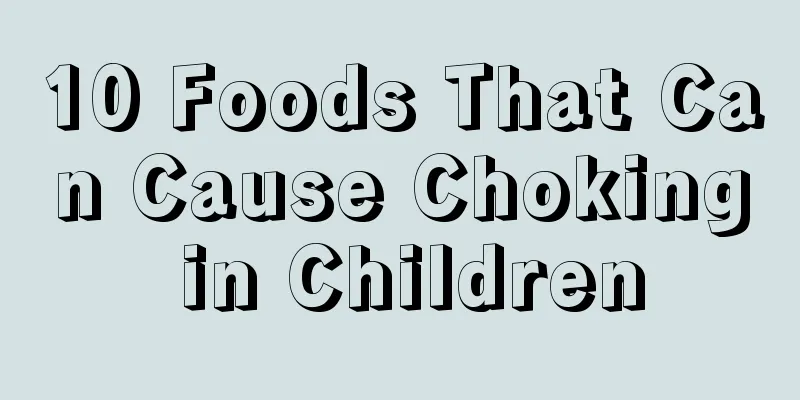What is the problem with children vomiting?

|
The physical health of their children is the most important thing in parents' minds. Once there is a problem with a child's body, it will affect every nerve of the parents. In life, many children are prone to vomiting, and some children even have problems with repeated vomiting. This can't help but make parents worry. So, what is the problem with children's vomiting? Let's explain it to you below. 1. Non-pathological vomiting In fact, in many cases, baby vomiting is not caused by illness. Irregular diet and uncomfortable smells may cause baby vomiting. This situation can be solved accordingly as long as the mother takes more care of the baby. The following are some of the more common non-pathological causes of vomiting in babies. 2. Vomiting caused by improper diet Babies sometimes vomit after a meal, but after vomiting they appear to be in very good spirits, very happy, and having a lot of fun. If this is the case, it may not be related to any disease. Most of the time it is due to indigestion caused by overeating. At this time, the mother does not need to worry too much, just observe the baby carefully to see if there is any abnormality. Also, when the baby is eating, he may eat food he doesn’t like, causing nausea and vomiting. In this case, the baby is not used to the taste of this food. After gradually getting used to it, he will not feel nauseous anymore. The mother should first adjust the baby's diet and try not to use foods that cause nausea in the baby. 3. Motion sickness causes baby to vomit It is very common for babies to vomit due to motion sickness while riding in a car. This is generally not pathological vomiting. The mother should keep the baby's head properly fixed and try not to let it sway left and right. This will help relieve the baby's discomfort when riding in the car. Do not let the baby be too hungry or too full before riding. 4. Feeding Problems In the first few months of your baby's life, vomiting is most likely due to a less serious feeding problem, such as overfeeding, indigestion, or an allergy to protein in breast milk or formula. To determine whether your baby is vomiting or spitting up (which is also common), just remember that when a baby spits up, only a few spoonfuls of milk will flow down his chin, while when a baby vomits, much more liquid will be spitted out. At the same time, the baby may be frightened by his own vomiting and may cry. |
<<: Dosage of Ambroxol for Children
>>: Why does a four-year-old child vomit frequently after eating?
Recommend
How to care for baby's mouth eczema
After many babies are born, their parents find th...
Urinary incontinence in children
Urinary incontinence is a very common disease. Th...
How to treat hydronephrosis in children
Hydronephrosis is a disease with relatively serio...
How to prevent and treat itchy athlete’s foot in children?
Since athlete's foot is easily contagious and...
What are the white spots on the child's fingertips?
A child's normal fingertips should be shiny a...
Can a 2-year-old baby drink pure milk?
For newborn babies, nutrients mainly come from br...
When does the baby start to defecate after using the enema?
Suppository is a medicine specifically for consti...
What should I do if my baby is shy and timid?
Many parents have the question of why other peopl...
The incubation period of hand, foot and mouth disease, remember this knowledge!
Hand, foot and mouth disease will not show sympto...
Can a seven-month-old baby eat kiwi fruit?
Kiwi fruit has a thin skin on the outside. After ...
How to treat watery stool in children
Sometimes children will have diarrhea if they acc...
Feeding knowledge for babies aged 1-2 months
Pay attention to the baby's feeding after bir...
What to do if a child has a fever of 38.5 degrees
Children have weaker constitutions and their body...
Baby sweats when sleeping in vest at night
Children are very important to every family, espe...
The mother's many foolish actions hurt the baby
Mothers all want to feed their babies to be smart...









